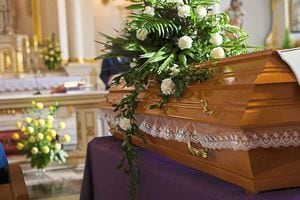Rise in pauper funerals as cost of dying soars
The cost of 'paupers' funerals' has more than doubled in one borough in less than a year as more people struggle with the cost of dying.

Dudley Council has funded 48 'public health funerals' - where the local authority pays rather than the family of the deceased - since last April.
That is a rise on the 29 for the whole of the previous financial year.
The bill for this year currently stands at £59,269.16, more than double last year's £28,897.66. The average cost to the council of a funeral has risen from £805 five years ago to £1,235 this year.
Councillor Dave Branwood, cabinet member for adult and community services, said: "It's difficult to say why there has been a recent upward trend in demand for this support but it may reflect the fact that many people are struggling financially in the community.
"It's important to remember, however, that everyone has the right to suitable funeral arrangements when they need them."
Last year, the council hiked the cost of cremations by seven per cent as part of its savings plan.
Under the Public Health Act 1984, councils pay for a funeral if someone dies outside a hospital and there is no one immediately available to foot the bill.
Councils can later attempt to reclaim the costs from the deceased's family.
Some funeral firms in Dudley say they have seen an increase in the number of families struggling to fund the costs of funerals.
William Downing, director of the funeral directors JT Brookes, said: "I've been in the business for ten years full time and in the last two or three years there has definitely been a rise."
Mr Downing said he did not expect the situation to get better in the short term, in part because Dudley Council had raised the cost of cremations and burials.
The cost of a cremation was now about '£2,000 and upwards', he added.
He said that families are often surprised by the cost of a funeral.
He said: "People don't like to talk about death or their funeral, but the reality is that when people do discuss their funeral arrangements with their families it helps everyone involved.
Some local funeral directors indicated that they were more likely now than in previous years to suggest to struggling families that a public health funeral might be their best option.
In part, this was because they wished to avoid the unpleasant task of chasing grieving families for money owed after a funeral.
A national survey conducted by insurance company Sun Life Direct in the autumn of 2014 found that the average total cost of dying in Britain had risen by more than 10 per cent from the previous year to £8,427.





